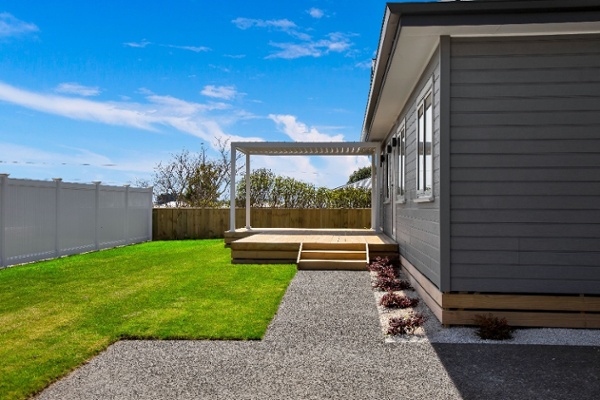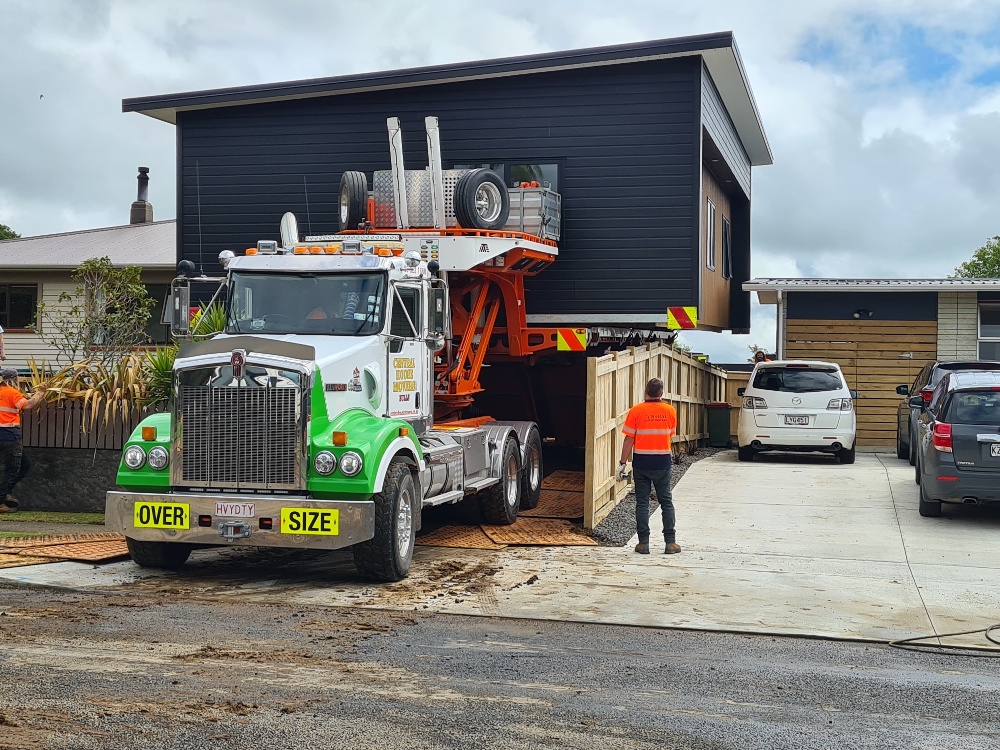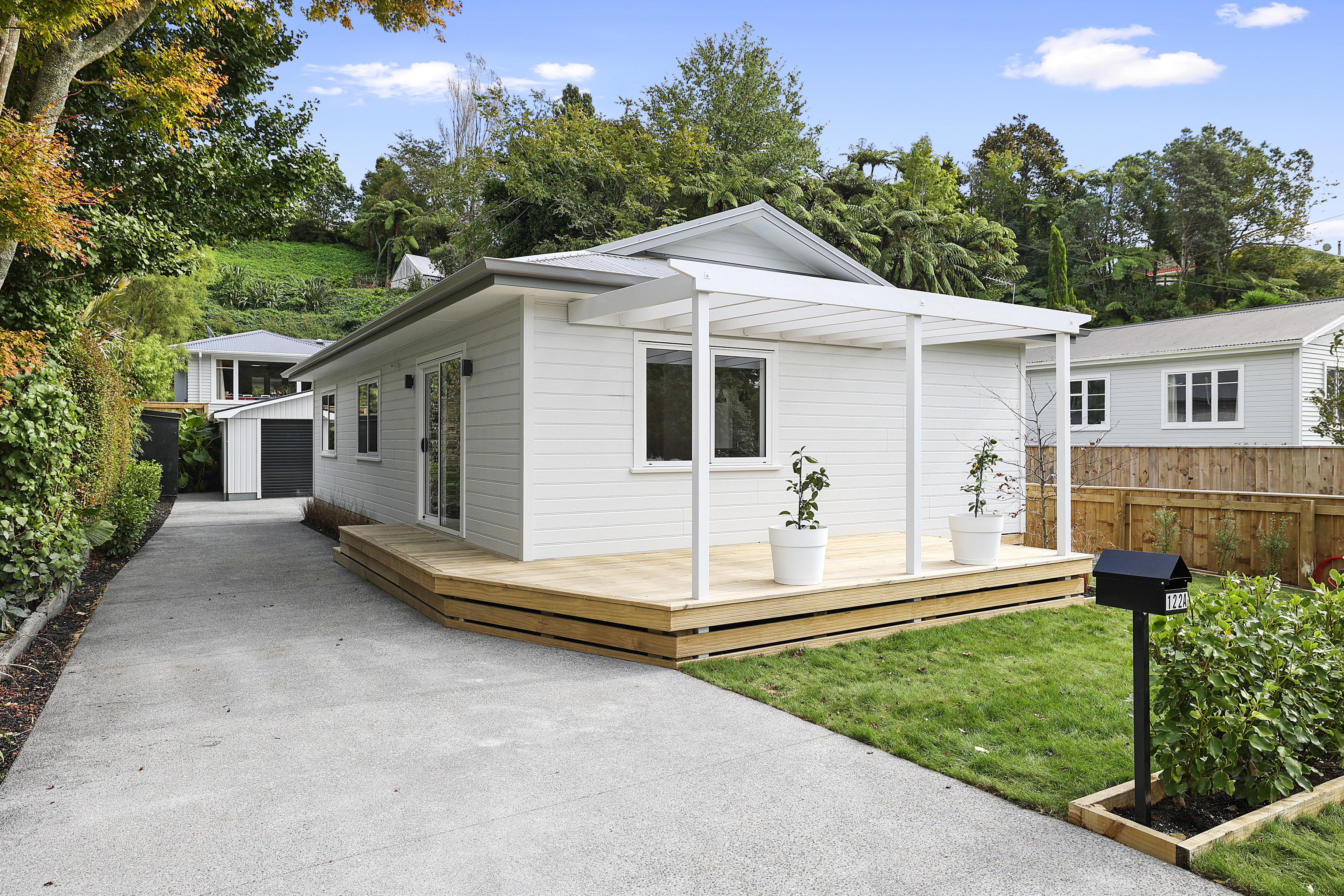Is it cheaper to build a new house?
 With the volatility of the current housing market, is your money better spent building or buying your next property? There are a lot of factors to consider when tossing up between building a new house and buying a pre-existing one. From costs to timeframes, as well as your unique needs and more, it can be a difficult decision to make but will ultimately become a defining factor in the next chapter of your life.
With the volatility of the current housing market, is your money better spent building or buying your next property? There are a lot of factors to consider when tossing up between building a new house and buying a pre-existing one. From costs to timeframes, as well as your unique needs and more, it can be a difficult decision to make but will ultimately become a defining factor in the next chapter of your life.
Making such a big decision is never easy, which is why we thought we’d offer as much help and insight as we can. This blog will look at which is the cheaper option in New Zealand’s current market. We will also look at the average cost of buying versus building a house, as well as typical costs when opting for a prefab home. There’s even a hidden bonus option at the end of the article that might be the best of both worlds.
Building a new house on-site
Building a new house is often an exciting prospect for many New Zealanders. The thought of creating a new, modern, personalised space that is completely your own is quite enticing. However, the downfall of building a new home is often the upfront cost as it is typically the most expensive option. It can also take longer and be subject to material delays. Let’s take a closer look into exactly how much building a new house could cost you as well as the pros and cons of this housing option.
The cost of building a new house on-site
The cost of building a new house has continually increased over the years. Between 2020 and 2021, the national average price per m² increased from $2,359 to $2,463 (an increase of 4.4%). However, as we’ll explain next, this is a significantly smaller percentage increase than that of median house prices. This is largely due to the fact that, as a country, we are building smaller houses and we also can’t build new houses fast enough.
While there’s no solid data on 2022 building prices, some predictions have been made. As the increase in building costs during 2021 was in line with the rate of inflation, it is expected that 2022’s increase in building prices will follow this trend. There is also a range of factors that could influence a higher price, including the impacts of the Covid-19 peak throughout New Zealand and the war involving Russia and Ukraine impacting the global materials supply chain.
The pros of building a new house
-
It’s brand new: The most desirable aspect of building a home is that you get a brand new home and you’re its first-ever owner!
-
You can make it your own: Every single aspect of your home can be tailored to your personal taste - from the layout, lighting, colours, sinks, and even doorknobs.
-
Lower energy costs: New homes typically incorporate newer technology which includes things like energy-efficient systems and materials, which lowers the long-term running cost.
-
They tend to be lower maintenance: A new home is built to the current building codes and standards which means you’re less likely to require any repairs or maintenance for the first few years. In fact, most building companies offer a limited warranty.
The cons of building a new house on-site
-
Stress: There’s a lot to consider when building a home including purchasing land, picking a design, selecting internal fittings, countertops, trim, and so much more. Plus, all of these decisions have to be made within budget. So many tough decisions can cause a lot of stress.
-
Extra costs: Your preferred countertop may be an added cost, as with all other decisions you make in your home - it can add up very quickly! Prices can increase over time or items become unavailable and replacements need to be found. There are also post-move costs to consider such as landscaping and blinds.
-
Longer wait time: It takes an average of 10-12 months to build a new house and that excludes the planning, design, and approval phases. This can cause a sort of limbo where you may need to move out of an old place, but the new house isn’t quite ready. This can become costly in terms of paying rent while your build is being completed.
-
Loud noises and dirt: A lot of houses are being built in new areas these days. If your house falls under this category, and your house is finished before others, you may have to put up with construction noise and lots of dirt for a little while. Of course, this won’t last forever but can be quite a pain in the interim.
Buying an existing house
This is typically seen as the easier option as everything you need, such as the foundations of the building, is already there and functional. However, buying a house is becoming more and more expensive compared to building a house and it’s not without its own problems either. We look at these factors in more depth below.
The cost of buying an existing house
New Zealand’s housing marketing has been heating up at an exponential rate for the past few years and has been growing increasingly unaffordable for the average kiwi. Of course, prices differ significantly from region to region, with Auckland having the highest prices of all. REINZ’s February 2022 property report stated that the median house prices across the country increased annually by 20.5% (that 4.4% building cost increase is sounding pretty sweet now, right?). This is an increase from $730,300 in January 2020 to $880,000 in January 2021.
Looking to the tail end of 2021, New Zealand’s average house price exceeded $1 million dollars for the first time in history. Of course, this makes buying a house the most expensive option by far.
The pros of buying an existing house
-
See before you buy: One of the immediate benefits of opting for an existing property is that you get to physically see it, touch it, and walk through it before putting down a deposit. You can also obtain a building report to gain a picture of any potential flaws in the construction before you make a decision.
-
Character and charm: Older homes often have a lot of character and quirks from their time. This isn’t necessarily something that can be injected into new buildings.
-
Fixed price: While buying an existing property isn’t cheap, you will know exactly how much you need to spend upfront when purchasing an existing property.
-
No delays on the move-in date: Once you’ve purchased the property and the agreed move-in date approaches, you’re guaranteed to move in without any unforeseen construction delays.
-
Choose your ideal location: These days, most of the inner city land is occupied meaning that purchasing an existing property may be the only way to secure a spot in your favourite or most convenient suburb, close to your city’s amenities
The cons of buying an existing house
-
The cost: The most obvious downside of purchasing an existing house is that prices are at an all-time high, so it’ll likely cost you a pretty penny.
-
Repairs and maintenance: Older homes can come with problems such as old fittings that need replacing or no insulation, among other things. Of course, these issues could end up costing you big time.
-
No frills: Purchasing an existing house means you get exactly what you see. While you can make it your own with furniture and accessories, you will likely have to compromise on some of your wants and needs such as kitchen size, scullery, landscaping, etc.
-
Outdated floorplans: Older houses tend to have quirky layouts that don’t always align with modern trends. For example, a lot of older homes don’t have open plan kitchen/living areas which are often a ‘must’ for new builds. While renovating is certainly an option, this comes at a high cost.

Building a prefab home
We’re adding another option to the mix - prefab homes can alleviate a lot of the pain points felt by both building and buying a home. It’s often a more affordable option, as well as being efficient and highly customisable.
The cost of building a prefab home
Building a prefab home typically comes at a lower cost than both building a new home and purchasing an existing property. Our house packages range from $216,000 for the compact, yet modern two-bedroom home to $398,000 for the more spacious and luxurious four-bedroom home. There are then the added costs for delivery (which varies between locations), services, and decking/verandahs. This means opting for prefab is certainly the lowest-cost option for housing in New Zealand, but the benefits don’t stop there…
The pros of building a prefab home
-
Efficiency: Our homes are constructed in as little as 6-8 weeks from build commencement, significantly reducing the time you would potentially need to be renting. Our build process is efficient which saves you both time and money.
-
No delays: Unlike a traditional build, a prefab home is built in a secure factory. This means there’s no risk of delays due to weather or any other external unforeseen factors.
-
Build your dream home: Prefab homes are extremely flexible and you can tailor the design to match your personal aesthetic and functional needs.
-
High quality, low cost: Prefab homes are built to the same high standard as a conventional build, yet they can be more affordable due to the more heavily controlled costs.
-
Low stress: A prefab home reduces the stress of building a new home as the entire project is managed by our expert team, in our controlled factory environment.
-
Low maintenance: A prefab home is built to the strict current building codes and standards which means you’re less likely to require any repairs or maintenance for the lifetime of the home.
The cons of building a prefab home
-
Securing land: Of course, purchasing a prefab home means you’ll need some land to place it on. You’ll need to purchase your own section or build on a friend or family member’s section. This often requires more time than a house and land package. Any landscaping to be done before the prefab home is put in place will also be an additional cost to factor into your budget.
-
Securing finance can be more difficult: Securing a mortgage can be trickier for a prefab home compared to a standard house. Although, assistance from a mortgage advisor and Manor Build will overcome most obstacles.
-
Additional expenses: While there will be no unexpected costs with a prefab home as our prices are all-inclusive, there are additional expenses. These include delivery, service connections, and decks/verandahs. However, we will discuss these costs with you upfront so you won’t encounter any unwanted surprises.
Ultimately, the choice you make will come down to your unique needs and budget. While traditionally there were only two options to choose from: building new or buying a pre-existing home, prefab homes are growing in popularity. Prefab homes offer a completely personalised, customisable, efficient, and lower-cost option for everyone to achieve their dream home.
Whether you're looking at buying a starter home, a forever home, downsizing, or an investment property, we can deliver a final result that will provide many years of enjoyable living! If you’re interested in learning more about exactly what we can achieve for you, feel free to explore our wide range of prefab home designs or download our brochure.
Tags: Transportable/Prefab home

.jpeg)


